I’m late because things are interesting weatherwise, and I’m full of reactions to it. I postponed the dentist and will be going to bed the moment I finish here. This means not only am I late, but there will be no pictures. All the remaining pictures will be crammed into next week’s conclusion. Thankfully, Amy and Ron and Mike are way entertaining and call each other names towards the end and so today’s interview more than makes up for me being late and there being no pictures. Last time, if you remember, we finished on Mike explaining what kind of person he is when he sits down to write, and wondering if that answered my question. Let me hand you over to Amy’s reply.
Amy:
Mike, I do what I do because I have to keep writing somehow and this is the easiest way for me right now. Ron and I were talking about the need to write, do we write for others at all, or is it something that comes from inside of us. I “write in order to know” what I feel, or what I think. To explore my knowledge and to reach some type of understanding. Because this is honest and I am proceeding honestly, just as do both of you – that’s why I know this type of blowback can occur. And it’s why I am now inured to it. I certainly did not start out that way, nor do I think you should do any differently than you are. You are a wonderful writer and “online flame wars” are hardly a productive use of anyone’s time.
And, I would like to share what I think the true nature and face is of online “political correctness” and keyboard “social justice warriors.” Most of the time, when such people are looked at in detail, they turn out to be anything but effective advocates for whatever injustice they purport to stand for. The recent case regarding Mercedes Lackey and the Grand Master award – where she supposedly said something objectionable about Chip Delany, who I think is over 80 by now – it was absolutely absurd. I am reading Chip’s social media reminisces about growing up, childhood experiences, many different plays, different writers and books—very fascinating. He’s been a preternaturally thoughtful man his whole life. I freely admit I couldn’t finish his very dense, intense books. I’m just plain not smart enough.
That said, I will absolutely step in for any man who is being attacked simply on the basis of his gender or racial/ethnic background. The powers-that-be, having noticed that many people who have been and continue to be oppressed, from Black Americans to Indigenous people in Canada to the cotton farmers in India who are committing suicide because they can’t afford to buy seeds and are in ever greater debt dooming their families—these are all real wrongs and real injustices.
But what they did to Misty Lackey? Helps NO ONE. It merely attracts attention to the complainants. It certainly angered the right wing out there. And it was sad, shameful, and completely non-productive. They actually took the award away from one awardee for addressing her peer in age and generation and fellow awardee as “colored.” It’s not a racial slur. It’s just an outdated term. I read the literally insane comments of the complainant and her small group of followers via Twitter. They called that lady’s old-fashioned statement “violence.” As someone who has directly experienced violence and who was also taught how to fight by my streetfighting and boxer Olympic athlete JEWISH father: I would be happy to show that fat bitch (I hope you appreciate these words, I do mean them) “violence.” Violence is direct violence. Not Mercedes Lackey saying “colored.” I’m just saying this my way but my Black friends would say something similar. They are as aware as I am that every time something like this happens, it further hardens white people who do NOT have a lot of Black friends against getting to know, working with, or establishing close relationships with Black people.
And as I mentioned to Ron, though it might have been sent only to Ron – my bad – my patience is absolutely done with those people. I have people with “Black” appearing profile pictures appearing on things I write and harassing me. But the words they use? Same words as used by white supremacists. I’m not making the “I have Black friends” argument. I am making the “If you give a rat’s a$$ about other humans you will treat them the way you want to be treated” and work with them, spend time with them, do business with them. I do that. These people don’t do much productive at all which is why they are this infernally assholish I live online 24-7 way.
This is because this particular type of political correctness serves corrupt, bad, and evil power structures. The enemies to the cotton farmers in India, the Black Americans who continue to experience daily real-world wrongs, from greater rates of imprisonment to less ability to get home or business loans or even to get decently-priced health or home insurance… they aren’t Mercedes Lackey, are they? They are billionaires from around the world who benefit from these practices. They’ve benefited for many, many years – for all I know, maybe forever. So the keyboard warriors are indeed “useful idiots” who serve the overarching purpose of keeping normal and decent people apart and at odds with each other as they enrich themselves and continue to pursue their destructive, immoral and heinously abusive lifestyles that are keeping all of us back.
That being said, Ron and I were chatting about Kevin Anderson’s anthology announcement about mermaids … I confessed to Ron that the whole “Gotta make money” thing has really pushed me toward fulfilling guaranteed contracts and the only “me” writing I do is Medium which is not exactly short fiction or novels. I noticed my Wikipedia has been changed to reflect that I am now living in SW Florida.
So I am starting to wonder about writing a short story with a mermaid. I was like “Tiki Bar mermaid” or “Calusa Indian mermaid” and this a.m., decided – why not both? And of course where we live is where Ponce De Leon landed. It is thought that an “Old Florida” tourist location, Warm Mineral Springs, which is very near where we live, was perhaps his “Fountain of Youth.”
Some of my favorite TV shows growing up were “Gentle Ben” and “Flipper.” This isn’t quite where I live – we are about 90 miles north of the Everglades and 10,000 Islands. BUT – we are on the Gulf – and they are starting to develop here just like happened in So Cal when I was growing up. I don’t know if we can do anything in real life about this but maybe my fictional mermaid could help a little. There are so many creatures here who could quickly dispose of a body.
Mike:
I don’t know why, Amy, but it always surprises me when I find myself on the same page as you, because I cannot recall reading anything you’ve written that I didn’t agree with, including what you’ve sent us here. And yes, you have nailed it—your useful idiots comment. Greed drives this planet—Planet Stupid as I now call it. While I am no fan of conspiracy theories, I do feel we are being manipulated on a daily basis, by leaders, by corporations, by news, and by entertainment media which continue to either inflame or numb, the common, singular goal to further fill the coffers of the already ridiculously wealthy.
I naively thought when the Berlin Wall fell, we were closer to an enduring peace and prosperity than ever before. I feel like a jackass now for even allowing myself to consider such a possibility, as if human nature and human history had somehow evolved beyond the age-old hatreds and passions. It never will. Hope is a fool’s game, no matter what the well-meaning might claim. Left or Right, I hate them all with equal vigour. Even in Canada, I no longer vote for a person or party I believe in, because there is no one to believe in; I vote for the party that maintains, at least on the surface, some degree of social conscience, that looks to broaden the social safety net rather than tear it down.
Political correctness. Cultural appropriation. The Mercedes Lackey incident, along with Isabel Fall’s “I Sexually Identify as an Attack Helicopter” and the intolerance surrounding it. Any perceived slight. Any perceived slip. And the person is dead meat. Oh, man, if I hear one more freaking apology from anyone about anything…
I follow a few writing groups on social media. Here, you’ll find writers asking if it’s okay for them to write about certain topics and others seriously telling them yes or no or how to do it so no one is offended. Here, they post lists of everyday words that writers should no longer use. The Left and Right are equally guilty, whether banning words, limiting creativity, or burning books. But these days, the Left frighten me more. I always knew where the Right was coming from and they have yet to let me down. But the Left disappoints in that they are a moving target, forever seeking new avenues of outrage, never hesitating to eat their own. On a very personal level, they also make it increasingly difficult for a Jew to remain progressive, and that is tough to take.
I could go on, address all of what you say here, but I really need to get back to my fiction. Heck, I’m not even going to re-read the above. So if I’ve offended anyone, feel free to cancel me and I’ll apologize immediately.
Ron:
I think that so much about having any real long-term success in this field, for me anyway, is about keeping myself in the right emotional frame of mind to keep doing good work. The social aspect of everything (including the political environments around me) play a big part of this. For example: I totally get the white male thing, which I am one, of course. I don’t feel threatened by the current world’s conversation about that—probably because I mostly agree with a particular bent that says I’ve been advantaged all my life. I do not feel attacked, or otherwise being pressed down because of it. This world is what it is. It’s all good. I d my best. I vote to help others. I attempt to advocate for those who are disadvantaged in as many ways as I can. I try to spend real time stretching my personal boundaries. Again, it’s all good.
But I also find that if I spend all my time railing against the man, my brain gets twisted into loops so tight that I can’t write.
So—for me—it’s a balance. If I get too angry, I can’t work.
That said, I acknowledge that simply being in a position that I’m able to push for that balance (which really means, stepping away from the fires) is an advantage I have. Unlike other people I know, no one is out trying to kill me for simply existing. No one is actively trying to take away my rights. Blah, blah, blah.
Regardless, that’s an aspect of being “analyzed” that does play on the edge of my the question Gillian asked. As a related aside, the first story I appeared in Writers of the Future with dealt with babies being artificially birthed. Shortly after it was published, I went to a convention, during which I was approached by two different women, one who gushed over it saying it was a powerful pro-choice statement, and the other who equally gushed the other way, noting how strong it’s pro-life position was.
I don’t know what to make of that, but I think it says something about people.
Ron:
That is kind of interesting, isn’t it.
I don’t know how to really respond to the accusation that I (we) answer these kinds of questions in stories. It’s just how I talk. That said, I’m an engineer by degree so when you say your life is full of theory rather than story I can relate to that, too. So. Yeah. I dunno.
When I was younger I know friends and other folks often commented on how I worked my way through describing funny events of the day or whatever, and when I started writing with full passion I don’t think it surprised a lot of them.
Since you’ve made me think about it, I suppose what I’m saying is that “story” is a way of thinking. We grow up learning to think in stories even when we don’t realize it. We get it all as kids, and it does carry through in all of our conversations – or at least all of them when we’re just sitting around chatting. Your question makes me wonder if there’s a tendency among writers, especially those who have done it for a long time, to make general conversation in the forms of min-stories, or at least using elements of story structure more naturally than others. I’m sure someone has had to have studied that somehow.
Of course, there are lots of obvious differences. Personal responses are just that– personal (about me!). Fiction is not about me. I mean, yes, it is, but it’s not!
Books and short stories and whatnot have cleaner structures than responses that are more off-the-cuff. Or at least more important structures. As writers we need to understand those structures lest we break them accidently and cause our work to fall apart, so I think writers work hard to slip the feeling of those structures under their skins. Eventually, we just kind of get them. For example, Amy and I once collaborated on a story in rapid-fire, back-and-forth way that essentially relied on us to both have an instinctive understanding of the structure we were building. It was great fun, and the story works. But, among other things, it’s fair to say that it worked because we both spoke “story.”
And you get a more focused few moments to grab attention on the page, but those few moments are probably more precious. Readers give you only so much free rope before they leave the page, whereas personal conversations and interview answers and whatnot tend to happen in freeform fashions that can be interesting in their own way. It’s easier to be entertaining I guess when you’re just having fun in short bursts, and I think we give people more freedom to wander in shorter bursts, too.
All that said, though, I’d guess most of my best writing happens when I’m in that same state of just saying things that seem to fit on the page – you know, letting the creative brain run free and cutting off the critical parts of me that can get in the way.
Did that answer the question?
I feel like I drifted. But, well, that’s life.
Amy:
I never answered Gillian’s question, I do not think –
I thought about this. First, I experience some things that I think Ron and Michael have experienced less, because they are men. I experience direct attacks and 1-star reviews from what appear to be mostly white older men who cannot stand the thought that a woman would write anything. I guess. I don’t know. Writers of color get the same and worse, whether they are male or female.
That said, I was a college teacher for over 20 years. I wrote some critical introductions for classic literature. Studying literature did influence my writing. I learned things I would never have learned or thought about if I had not read the great Russian novelists, or if I had not read classics of Latin American literature in Spanish.
There are two academics with whom I’ve corresponded, and who have read my work, who I felt very close to, and appreciated their questions, commentary, and discussions very much. One of them is no longer with us: Sylvan Barnet, who was a major editor of academic texts for high school and college literature programs. Sylvan edited many books for W.W. Norton and BDSM (Bedford-St Martins). I was teaching out of one of his books, Current Issues & Enduring Questions – this remains the most-adopted/used college rhetoric text. It included “The Ones Who Walk Away From Omelas,” by Ursula K. LeGuin. As you know, Gillian, we were so fortunate to have Ursula as part of our SF-FFW’s women’s sci fi/fantasy writer group, and she also helped us so greatly during the early days of Book View Cafe, to help us publish more of our work. So I “cheekily” wrote Sylvan and told him I’d written a story called “Perfect Stranger” (inspired after my baby Anthony was born with Down Syndrome).
I felt like I had achieved everything I wanted to do with short fiction after I wrote that story. I wanted to emulate the spare style of Raymond Carver. I had already written about the dad, Gary, before. Gary was my all-purpose “Dad” or guy throughout several stories, a thoughtful man, an architect. And it was not difficult to base the misguided wife in the story, who wants to give their son Denny any gene therapy treatment possible to “improve” his chances in life, school performance, and “popularity,” on a lady I had known – several such ladies, actually.
Sylvan read the story and wrote back with his thoughts. He believed that it indeed asked questions about current issues (gene therapy) and enduring questions (fatherhood). So, this story is now in college and high school literature texts and medical ethics textbooks.
I also have had and continue to have a friendship and correspondence with Dana Gioia, the former chair of the National Endowment of the Arts (NEA) and an Aspen Institute Fellow. A lot of people in the field do not know (nor care lol) that I write poetry. Dana is a poet and was a poor kid from the working class So Cal community of Lawndale. When Ursula Le Guin was still alive, a few of us (Vonda included) thought she really should be considered for a Nobel Prize in Literature. I knew that Dana was a “sci fi fan” so I wrote him about it. It turned out that not only was he a major sci fi fan, he was also one of the group of Nobel Prize academic recommenders. So, he wrote on her behalf, I recruited others on her behalf and of course… nothing happened. But we got to know each other better through that process. I have enjoyed corresponding with Dana about his poetry and vice-versa.
When I think about these two men, our interactions remind me very much of what I think I am saying in this article that I just read this morning.
There is reality and daily experience. I just saw this on my “social media” this morning – a little thing I wrote two years ago in August – so we were in Punta Gorda, and would be moving here to our house in about two months. Probably I had been looking out over the canal and seen our teenaged fishing dolphin at work in the morning.
There is a wordless joy in nature, a feeling of ecstasy and overwhelming vibrancy present in places where the din of obsession with unimportant things grows quiet and the beauty of life breaks through and envelops us with life and love.
So, we were playing music at our local coffee shop Friday night and I had a semi-philosophical chat with our friend Tony, who is about 25-26 and his girlfriend Kelsey. I’ve recently had a social media interaction with John Kessel, a university professor who believes the world is going to Hell, and my old friend Jim Blaylock chimed in to agree with me with “The young people aren’t like that and aren’t going to be like that….” Jim started the OC Performing Arts High School. I would never call myself or Blaylock an “academic” though both of us have taught.
And I thought about what Tony had said – “Social media is dead” – and I think art is personal. I don’t want to write for money or fame and I really appreciate the conversations I’ve had with academicians in a positive way. What I write now is almost 100% for myself. How strange, how selfish. How???
Ron:
Michael – Given the background I can see, I’d say you’re the shining beacon rather than the pale shadow. 🙂
Mike:
How dare you! No one calls me a beacon, Ron. No one. I think it’s time we stepped outside and sorted this out, once and for all. My God, such language!
Ron:
If I edit it to “bacon” would that be better? I mean, everyone loves bacon, am I right?
And the great thing about being a writer is you don’t really have to be cool in first draft.
Amy:
>>If I edit it to “bacon” would that be better? I mean, everyone loves bacon, am I right?>>
I’m ham!!! Omg, ham!!
Ron:
If Michael is bacon, and Amy is ham, I guess that makes me toast.
Amy:
And now you see the trouble with these stories Ron + I wrote together …
Ron, you’re sausage
Ron:
True enough, I suppose. I mean, you really don’t want to see me made.
Mike:
All right, you guys have convinced me. The writing life is not for me. I’m moving to Utica, NY and becoming a professional bowler. Clearly, this entire experience has been revelatory. I apologize for bailing on you, Pancakes, but Toast and Ham have opened my eyes to my true calling.
With gratitude…
SBOAH
Ron:
Utica. Hah.
The problem with fiction writers is that you can’t believe a thing they say.
Mike:
At the very least, Gillian is sure to appreciate the extraordinarily mature direction this literary discussion has taken. If only we could replicate this on a panel somewhere.
Gillian:
It’s Tuesday and I’m catching up. I love the way you were so serious and now you’re… not. It says all the things I hoped you would say.
And so Part Three finishes on a Tuesday in interview time and, for me (since Australia is ahead of the US by many, many hours) on Tuesday in my local time.
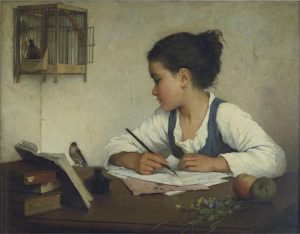 In which I interview myself on National Novel Writing Month (NaNoWriMo)
In which I interview myself on National Novel Writing Month (NaNoWriMo)

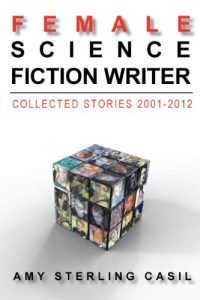
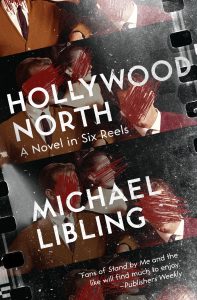
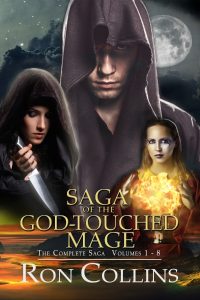
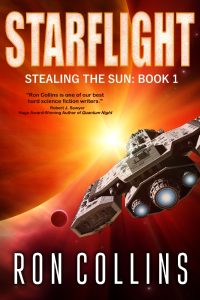
 Terrorists of Irustan to the deeply touching The Glass Harmonica, to the YA “Horsemistress” series (as Toby Bishop), to the music-themed Mozart’s Blood and The Brahms Deception, the scope and insightfulness of her writing mark her as a major voice in fantasy and science fiction. Her newest novel, The Great Witch of Brittany, will be released in February 2022.
Terrorists of Irustan to the deeply touching The Glass Harmonica, to the YA “Horsemistress” series (as Toby Bishop), to the music-themed Mozart’s Blood and The Brahms Deception, the scope and insightfulness of her writing mark her as a major voice in fantasy and science fiction. Her newest novel, The Great Witch of Brittany, will be released in February 2022.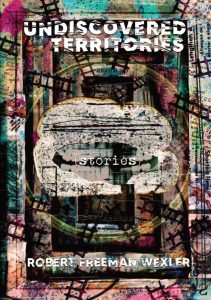
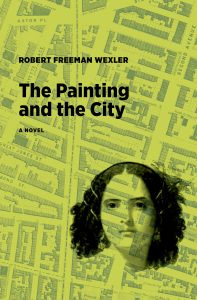 contradictions of its history and its difficulties. Was it intended that way? As someone who once lived in NYC, what are some other thoughts you have about the city?
contradictions of its history and its difficulties. Was it intended that way? As someone who once lived in NYC, what are some other thoughts you have about the city?